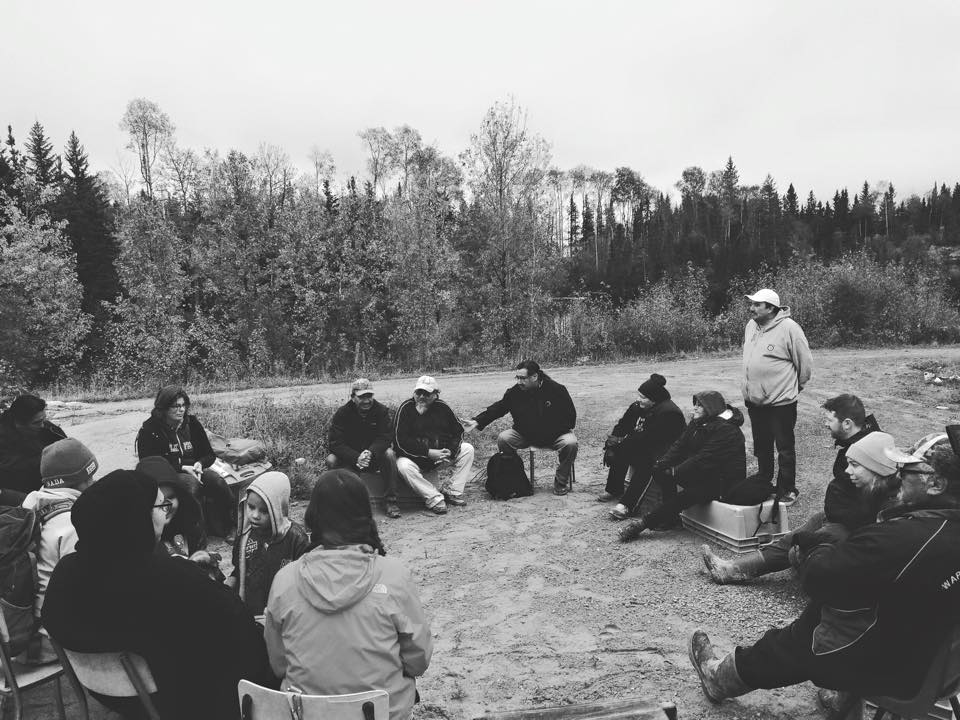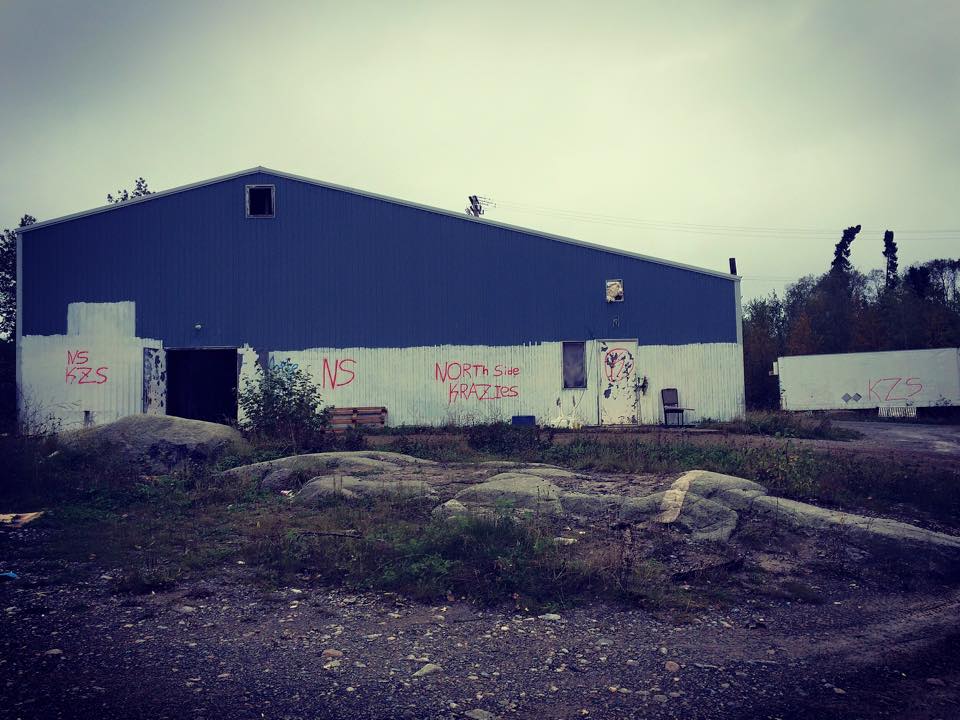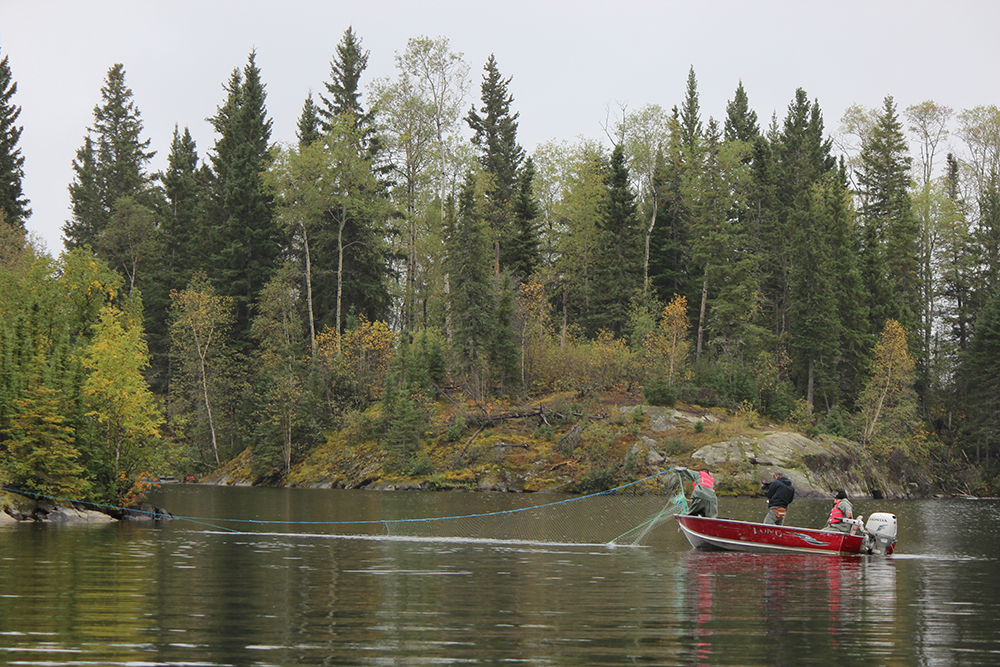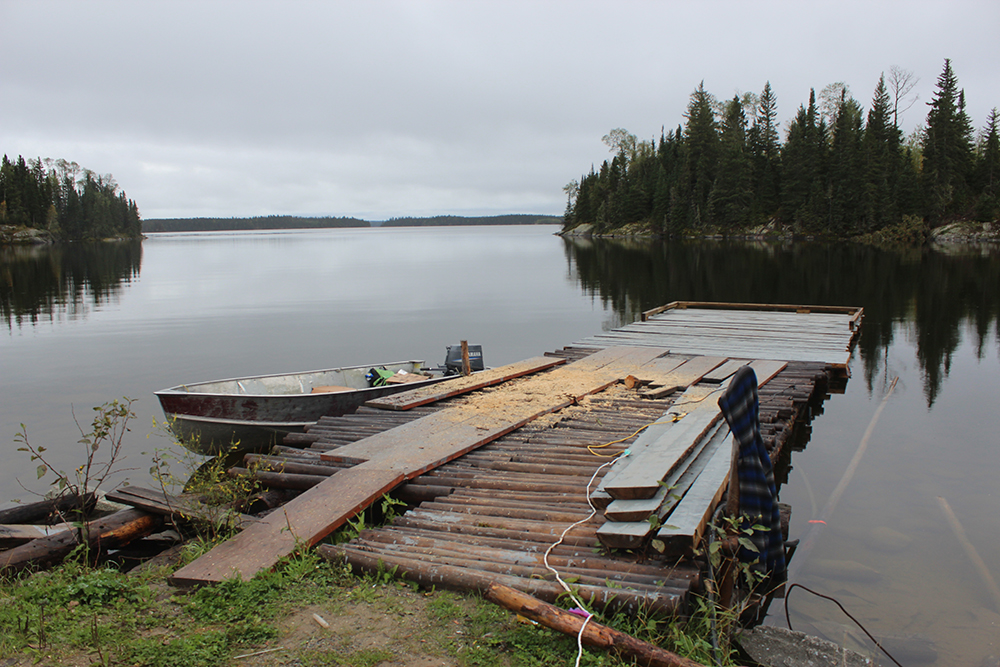After being closed for many years, the commercial fishing plant in Garden Hill First Nation, a fly-in community in Northern Manitoba, is up and running again. Float planes—carrying up between 800 and 1,400 pounds of fish—are able to do two trips a day in and out of the community to bring the fish to market.
In Garden Hill, fishing is very important culturally. It is something that’s always been done. The re-opening of the fish plant is an important milestone for the community, and an economic opportunity that offers food and employment prospects to the surrounding community.

Congratulations to the Wabung Fisheries Co-op, who worked to restore and re-open the local fish plant. The plant re-opened on September 22 to process local pickerel—branded as ‘wild caught fish’, a highly desired brand for fine dining restaurants—from Island Lake and five smaller inland lakes.

“The opening of the fish plant is important because fishing has been our tradition for a long time. Now there are 10 people working at the plant and 15 fishers bringing fish each day,” says Ivan Harper, Fish Plant Manager of the Wabung Fisheries Co-op.
The Co-op will market fish locally and to customers outside of the community. They have established an agreement with Freshwater Fish—a federal Crown corporation that buys, processes, and markets fish—to supply 200,000 pounds of fish from the region.
However, the economics of flying fish out to market can be very narrow. The plant employs local people in packing fish and is working towards value-added processing, such as smoking or fileting. This additional processing could offer more local job opportunities and a higher value product to ship and sell outside of the region.

Local fishers demonstrating how to set a commercial fishing net. Photo: Sara Hsiao.
“We have always fished and there are young people who want to learn how. I hope for next year that we can get support for mentoring young fishers and to improve our freight rates from outlying lakes,” says Ivan.
This project has partnered with the Northern Manitoba Food, Culture, and Community Fund (NMFCCF) at Tides Canada for the past two years. A large part of this funding went to physical plant upgrades like a dock restoration to accommodate the stream of float planes and fishermen, and the refurbishing and repair of a blast freezer to chill fish for transport.

Recently, Tides Canada’s Julie Price, Todd Jaques, and Sara Hsiao and fellow NMFCCF northern advisors and funders visited the community of Garden Hill as part of continued efforts to encourage collective learning and the exchange of ideas for the NMFCCF. Their trip included a visit to the fish plant, which was undergoing renovations at the time.